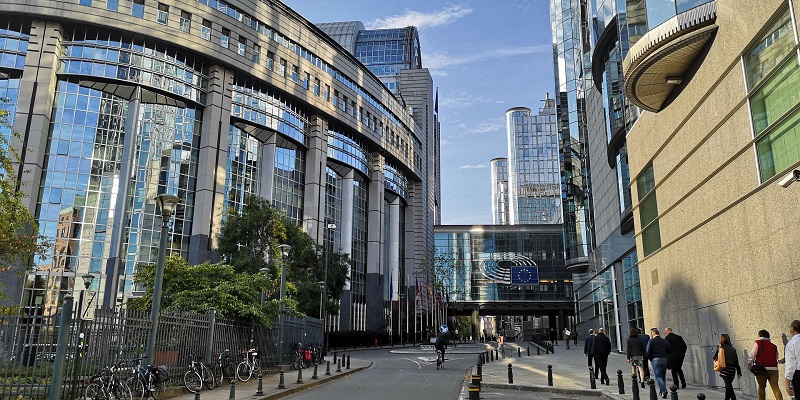
Advocacy Yearly Highlights: Legislative Files
As the festive period approaches what better way to celebrate than to reflect on all of the results that ECF’s advocacy work has brought this year. We have been pushing hard on the great glass doors of the Parliament, Commission and Council and are happy to say we’ve had some great successes. Indeed so much so that we’ve had to split this article in two. You can find our non-legislative advocacy successes here.
Railway Passenger Rights. At the end of November the European Parliament backed a proposal that ECF has worked closely on with MEPs. This includes a provision that all new and refurbished trains will be required to have eight designated bicycle spaces. The legislation is currently with the European Council and we are in regular contact with many Member States, working to convince them that this wording should make it into the final regulation. This, among other effects, will provide a strong boost to cycle tourism, which compliments the Parliament’s other announcement this year that they support as an independent budget line, a 300 million budget for sustainable tourism in the 2021-2027 Multiannual Financial Framework.
The Road Infrastructure Safety Management (RISM) Directive. Our main objective here is that cycling will be properly taken into account when new transport infrastructure is being built. Positively, in their December meeting, Transport ministers added specific wording to protect vulnerable road users. What is still missing however, are the specifics of how this will be done. We want the Directive to include a reference to EU level minimum quality requirements for cycling infrastructure. The battle will rage on in the New Year with key votes scheduled soon.
The General Safety Regulation (GSR) is about making motorised vehicles safer for cyclists, through better design and equipment for cars and lorries, using technologies such as Automated Emergency Braking, right-turn assist for lorries and Intelligent Speed Assistance (ISA). ECF has been working hard to ensure the commission’s proposal from May will not be watered down. Taken together, this proposal could reduce fatalities on European roads by 25,000 over a 15-year period, with ISA on its own cutting road crashes by 30% and deaths by 20%! Having survived initial contact with the Parliament and Council, and good noises coming from the IMCO Committee of the Parliament for their vote in February, ECF has high hopes.
VAT. The idea that member states cannot set zero or reduced VAT rates on the sale of E-bikes (EPACs) runs contrary to many national policies. Financial incentives for consumers to buy e-bikes just don’t make much sense in the context of a minimum 15% sales tax! This is especially ironic as the European Commission has proposed that electric cars should qualify for an exemption. In June ECF and CONEBI set out a joint position paper on the issue and just recently, the Platform for electro mobility, has joined our call!
The Motor Insurance Directive. The Commission wants to classify Pedelec 25s (Bicycles with 250 watt power support to the users pedalling, speed limited to 25 km/h) as motor vehicles, requiring them to have liability insurance as if they were cars or motorbikes. Yet Pedelec 25s pose no more danger to users or the wider public than a normal bicycle, making mandatory insurance seem totally unnecessary. ECF is lobbying the European Parliament and Member States to exclude the Pedelec 25 from the scope of this Directive, laying the groundwork for votes next year.
Our last legislative efforts have been on the Energy Performance of Buildings Directive, where we have been arguing for a holistic approach to be taken. On the one hand Europe’s buildings are becoming more energy efficient, but on the other building regulations require an oversupply of car parking to be built, as we know that car ownership/usage causes a household’s energy usage to sky rocket. To highlight this paradox, ECF has written a report comparing the building codes of 31 European countries, highlighting how car use is promoted within building codes, and contrasting it to how bicycle parking is treated. We think the situation needs to be turned on its head. The study will be published early next year.
Topics:
Contact the author
Recent news!
Upcoming events
Contact Us
Avenue des Arts, 7-8
Postal address: Rue de la Charité, 22
1210 Brussels, Belgium









